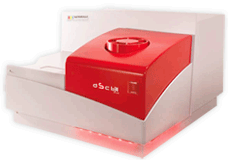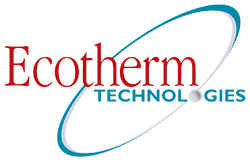 |
Differential Scanning Calorimetry (DSC)/ Differential Thermal Analysis (DTA) - DSC131 evo An-easy-to-use Differential Scanning Calorimeter DSC (-170 to 700°C) with a 3-year warranty |
|
The HIGHLIGHTS - Robustness: the DSC131 evo features a highly robust sensor that, if needed, can readily be changed by the user in less than 30 minutes. No other DSC offers such flexibility.
- Ease of operation: dedicated market leading CALISTO software that is not only intuitive but powerful enough to perform every typical experiment and data treatment.
- Flexible and powerful: from -170 to 700 °C, with rapid heating and cooling performance.
- Large range of crucibles: in addition to the regular 30 µl crucibles, crucibles with a capacity of 100 µl are used for analyzing heterogeneous samples and for optimizing Cp (heat capacity) measurements.
- High pressure Crucibles: The High pressure crucibles deliver unmatched High pressure resistance (up to 500 bars / 7 250 psi, 600 °C) while the DSC sensor itself remains at atmospheric pressure.

CRUCIBLES - Regular crucibles: We offer a range of crucibles designed to ensure good thermal transfer between the sample and the sensor – Alumina, Aluminum (30 and 100 µl).
- High pressure crucibles: Incoloy and Gold plated Incoloy (30 µl) for High pressure capability: the High pressure Incoloy crucibles deliver unmatched High pressure capability (up to 500 bars / 7 250 psi, 600 °C) while the DSC sensor itself remains at atmospheric pressure.
SUBAMBIENT COOLING SYSTEMS For subambient temperatures, two types of cooling device are available: - A simple liquid nitrogen (LN2) cooling accessory: The LN2 accessory is a manually operated cooling accessory. Its temperature of operation is from -170 to 500 °C and it is a highly robust and cost effective solution to low temperature control.
- A cryothermostat cooling device for intermediate temperature ranges: -80 °C to +200 °C under a flow of Helium -50 °C to +500 °C under a flow of Argon, Nitrogen or dry Air.
SENSOR The DSC131 evo transducer has been designed using plate-shaped DSC rod technology and is constructed from chromel-constantan.
It is arranged in a small volume, resistor furnace with low thermal inertia to enable high heating and cooling rates for high-speed experiments.
The furnace temperature is highly uniform which is key to its high quality data as well ensuring accurate measurement of the sample temperature during thermal events.
The DSC131 evo transducer also displays good sensitivity over the whole temperature range (-170 °C to 700 °C).
As well as accurately measuring the thermal events, the DSC131 evo transducer ensures accurate measurement of the sample temperature during transformations.
Applications With its wide temperature range (-170 °C to 700 °C) the DSC131 evo can meet a wide range of applications, especially when dealing with polymers and plastics(characterization, quality control) as well as with organic and pharmaceutical compounds (polymorphism, purity, thermal stability), with inorganic substances (dehydratation, transition, decomposition), with metals (transition)... from the raw to transformed materials.
As a teaching tool the DSC131 evo offers a unique blend of performance, ease of use and robustness to allow the training of students in the thermodynamic principles of phase change(fusion, crystallization, evaporation), transition (glass transition, order-disorder transition), reaction kinetics(polymerization, decomposition), or heat capacity.
|













